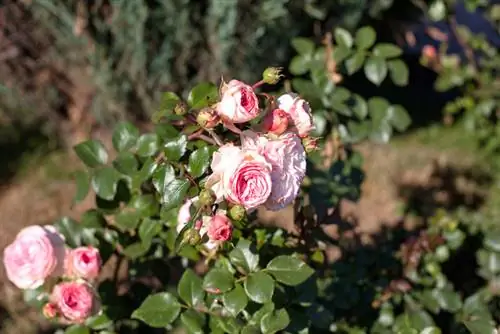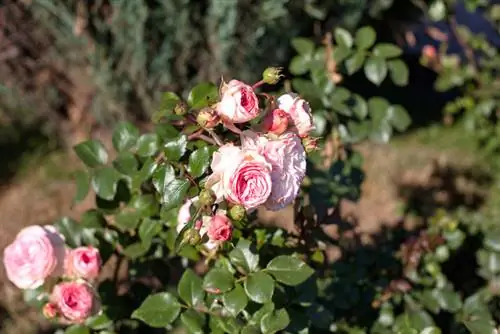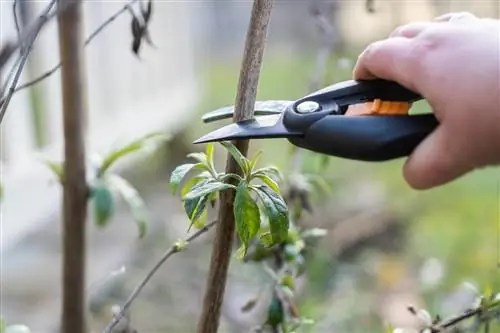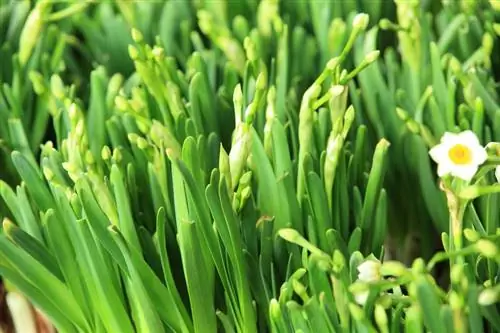- Author admin leonars@hobbygardeners.com.
- Public 2023-12-16 16:46.
- Last modified 2025-01-23 11:20.
Roses are quite vulnerable flowers that often respond to disturbances with reduced or even completely stopped growth. We have put together the possible causes for this and what you can do about it in this article.

Why aren't my roses growing?
If roses do not grow, this can be caused by soil fatigue, unsuitable location, incorrect care, rose diseases or pest infestation. This can be remedied by changing the location, using appropriate fertilization and care, and avoiding mistakes when planting.
Soil fatigue is a common cause
If the freshly planted roses really want to grow, then the so-called soil fatigue may be the reason. The causes of this phenomenon are not yet fully understood, but it is suspected that the roses react to a certain cocktail of bacteria in the soil. This develops if there have already been roses in the selected location. By the way, other species belonging to the rose family (e.g. stone and pome fruits, raspberries, strawberries and many ornamental plants) can also cause this effect. As a rule, only a change of location or a generous replacement of soil helps.
Inappropriate location and incorrect care
Other common causes of rose failure are an unsuitable location and/or incorrect care. If the location is right, roses forgive a lot, even small carelessness. However, soils that are too dry and too wet make roses much more susceptible to pests and diseases, and too little or incorrect nutrient content leads to growth problems. The problem is not just poor soil or insufficient fertilization, but often also over-fertilization - especially with nitrogen, phosphorus or lime.
Rose diseases and pest infestations
Fungal diseases and pest infestations are very common in roses, especially if they are already weakened due to incorrect care or an unsuitable location. This weakening often means that the roses are able to put less energy into growth - after all, they are completely occupied with fending off or compensating for the consequences of the infestation. If the rose is very susceptible to this, try changing its location. Severe pruning when transplanting and well-prepared soil in another location can significantly reduce susceptibility.
Tip
If the location and care are not the cause of the stunted growth, errors during planting may be a possibility. Many rose lovers mulch the rose, perhaps with bark mulch. Roses cannot tolerate such treatment because the mulch prevents the necessary exchange of air in the soil and also promotes the settlement of fungi.






